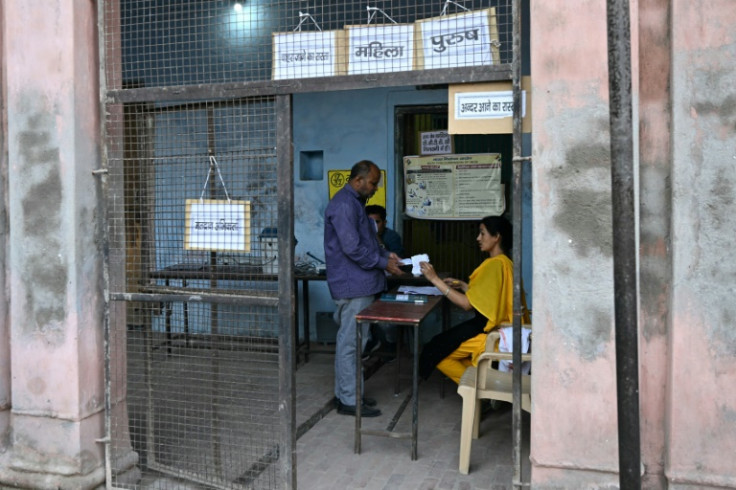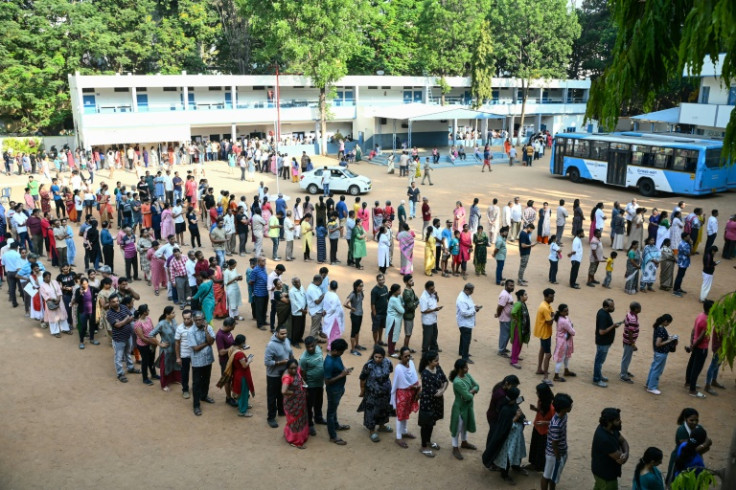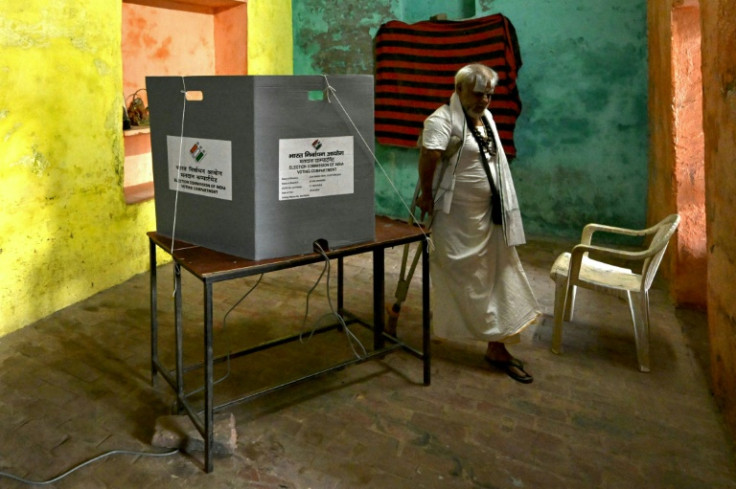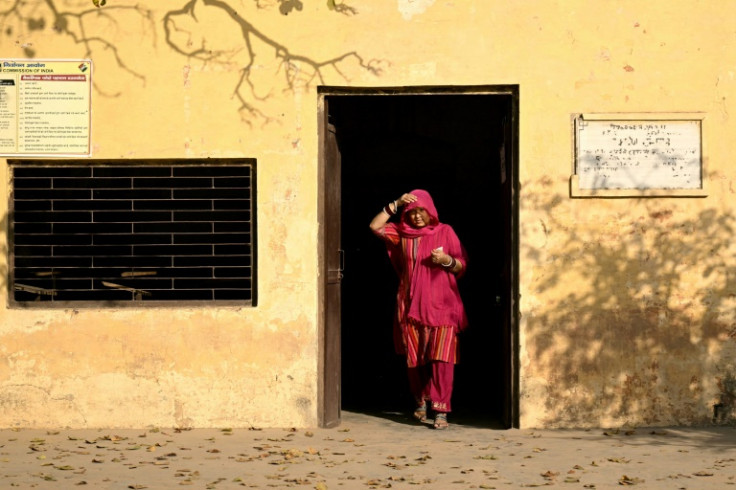Indian Election Resumes As Heatwave Hits Voters

India's six-week-long election resumed Friday with millions of people lining up outside polling stations in parts of the country hit by a scorching heatwave.
Prime Minister Narendra Modi is widely expected to win a third term in the election, which concludes in early June.
But turnout in the first round of voting last week dropped nearly four points to 66 percent from the previous election in 2019, with speculation in Indian media outlets that higher-than-average temperatures were to blame.
Modi took to social media shortly before polls re-opened to urge those voting to turn out in "record numbers" despite the heat.
"A high voter turnout strengthens our democracy," he wrote on social media platform X. "Your vote is your voice!"
The second round of the poll -- conducted in phases to ease the immense logistical burden of staging an election in the world's most populous country -- includes districts that have this week seen temperatures above 40 degrees Celsius (104 degrees Fahrenheit).
India's weather bureau said Thursday that severe heatwave conditions would continue in several states through the weekend.
That includes parts of the eastern state of Bihar, where five districts are voting Friday and where temperatures more than 5.1C above the seasonal average were recorded this week.
Karnataka state in the south and parts of Uttar Pradesh, India's most populous state and heartland of the Hindu faith, are also scheduled to vote while facing heatwave conditions.
"Voter turnout we typically expect in the early hours is quite low this time around," polling officer Shyam Sundar Bharti told AFP in Mathura, a city not far from the Taj Mahal where temperatures were expected to hit 41C (106F).
"The heat is the reason," he said.
Analysts have long expected Modi to triumph convincingly in this year's vote, an assessment outwardly shared by his ruling Hindu-nationalist Bharatiya Janata Party (BJP).
Political analyst and Modi biographer Nilanjan Mukhopadhyay said that perceptions of the vote as a foregone conclusion may have dampened voter enthusiasm.
"There is some disinterest among some BJP voters," he told AFP, "because when they hear the leadership say 'we will get 400 seats' they think, why slug it out in the heat?"
India's election commission said this week it had formed a task force to review the impact of heatwaves and humidity before each round of voting.
The commission said in a statement on Monday it had "no major concern" about the impact of hot temperatures on Friday's vote.
But it added that it had been closely monitoring weather reports and would ensure "the comfort and well-being of voters along with polling personnel".
A wave of exceptionally hot weather has blasted South and Southeast Asia, prompting thousands of schools across the Philippines and Bangladesh to suspend in-person classes.
The heat disrupted campaigning in India on Wednesday when roads minister Nitin Gadkari fainted at a rally for Modi's party in Maharashtra state.
Footage of the speech showed Gadkari falling unconscious and being carried off the stage by handlers. He later blamed the incident on discomfort "due to the heat".
Years of scientific research have found climate change is causing heatwaves to become longer, more frequent and more intense.
Friday will also see voting in the constituency of India's most prominent opposition leader -- Rahul Gandhi of the once-dominant Congress party.
The 53-year-old is fighting to retain his seat in the southern state of Kerala.
"It is the duty of every citizen to become a soldier of the constitution, step out of their homes today and vote to protect democracy," he wrote on X.
Gandhi is the son, grandson and great-grandson of former prime ministers but his Congress party has suffered two landslide defeats against Modi in the past two general elections.
He has been hamstrung by several criminal cases lodged against him by BJP members, including a conviction for criminal libel that saw him briefly disqualified from parliament last year.
The opposition alliance has accused Modi's government of using law enforcement agencies to selectively target its leaders and undermine its campaign.
More than 968 million people are eligible to take part in India's election, with the final round of voting on June 1 and results expected three days later.



© Copyright AFP 2025. All rights reserved.





















